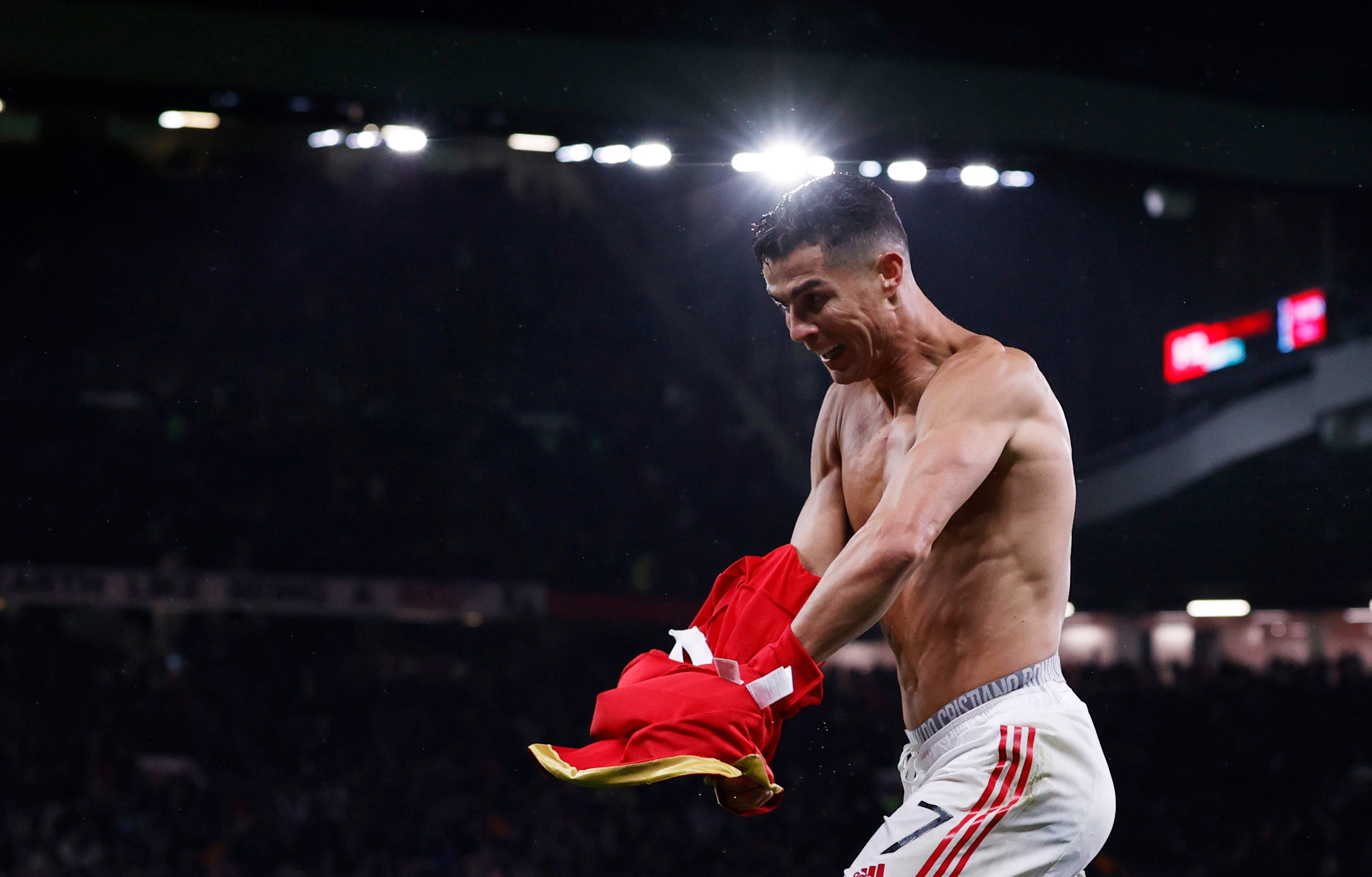Manchester United vs Villarreal: Five things we learned as Cristiano Ronaldo earns Champions League win
Manchester United 2-1 Villarreal: Cristiano Ronaldo’s late winner salvaged an improbable victory on an otherwise tough night for the hosts

Ronaldo is unstoppable
For 94 minutes it seemed like Villarreal had cracked how to stop Cristiano Ronaldo. He has been averaging five shots per game in the Premier League, proving a constant threat, but here he barely registered for most of the game. That was down to a few factors out of his control – a system which seemed to leave him isolated, a generally underwhelming performance from those around him, and most importantly an impressive opponent in Villarreal who nullified United’s build-up play and stopped Bruno Fernandes and Paul Pogba from having time and space in the final third to look up and pick out their target. For all those Premier League sides wondering how to keep Ronaldo quiet, there is no guarantee, but this was something of a blueprint: work extremely hard to cut off his supply line.
Yet all that hard work came to nothing. Ronaldo was in the right place at the right time when the ball ran loose in the box and he finished emphatically. Lionel Messi did something similar against Manchester City, springing out of the shadows, and perhaps this was the take-home message – that greatness is ultimately undeniable.
Solskjaer’s failed 4-3-3 experiment
Ole Gunnar Solskjaer tried something different here, ditching the normal 4-2-3-1 formation to play 4-3-3, with only one holding midfield player rather than a double pivot. On paper it made sense, freeing up Paul Pogba to play as an attacking midfielder on the left side of the central three rather than as either winger or holding player as he usually does, with Bruno Fernandes given licence to attack down the right.
But somehow it didn’t come together. No longer in his No10 slot, Fernandes was unable to get into as advanced positions. Meanwhile Scott McTominay was left trying to cover acres of space on his own as the lone anchorman. This system works at Manchester City and Liverpool, where the players are drilled to within an inch of their life to press as one unit, but United are not coached that way and it meant gaping holes around the Scot which he could not fill on his own. As we will come to, Diogo Dalot struggled in a hybrid fullback-midfield role, while Jadon Sancho and Mason Greenwood seemed stranded on the wings. United may have got the win but it was unconvincing for large spells, with two pieces of individualism saving the day, and for Solskjaer it’s back to the drawing board.
Dalot’s disaster
Diogo Dalot’s first-half performance might have been the worst by a Manchester United right-back since Gary Neville managed to gift Romario two goals at the disastrous 2000 Club World Cup. The quick feet of Arnaut Danjuma twisted the Portuguese defender inside out and Villarreal’s chances flowed generously from that flank. Dalot can be effective going forwards but he showed his vulnerability defensively, and Danjuma exploited it – only the lack of a decisive finish (or rather the expert goalkeeping of David de Gea) and the half-time whistle gave Dalot any relief.
In fairness, Dalot was asked to play an unusual tactical role by Ole Gunnar Solskjaer. Much like Joao Cancelo at Manchester City, Dalot drifted inside into a midfield position when United had the ball and it meant he was well out of position as soon as Villarreal won it, with a chasm of space in behind him. But even when Dalot had the right starting position he found it almost impossible to contain Danjuma, and it didn’t get much better in the second as Villarreal’s goal came down his side. It was a night to forget and did little to advance his position in the pecking order with Aaron Wan-Bissaka.
Danjuma delights
While Dalot struggled, Danjuma was a thrilling proposition. His ability to draw defenders before bursting away was irresistible at times and his raw pace and power combined with a magnetic touch made for a constant and menacing threat. It was his dart and first-time cross with the outside of his foot which created Paco Alcacer’s deadlock breaker, no less than Villarreal deserved.
It has been a stop-start career so far for the 24-year-old, most recently spending a couple of years at Bournemouth where he did enough – with 15 goals in the second tier – to encourage interest and earn a big step up from the Championship to the Champions League this summer in a £20m deal. The Nigeria-born Dutchman has a couple of caps for the Netherlands and clearly has enough about him to add more – he’s already scored three goals this season and looks set to flourish in Spain.
United off the bottom
A draw would have left Manchester United bottom of Group F after two games following defeat to Young Boys on matchday one. The two games against Atalanta would have carried huge pressure. Instead United are right in the mix again, and their hopes of progression are well and truly alive.
Subscribe to Independent Premium to bookmark this article
Want to bookmark your favourite articles and stories to read or reference later? Start your Independent Premium subscription today.

Join our commenting forum
Join thought-provoking conversations, follow other Independent readers and see their replies